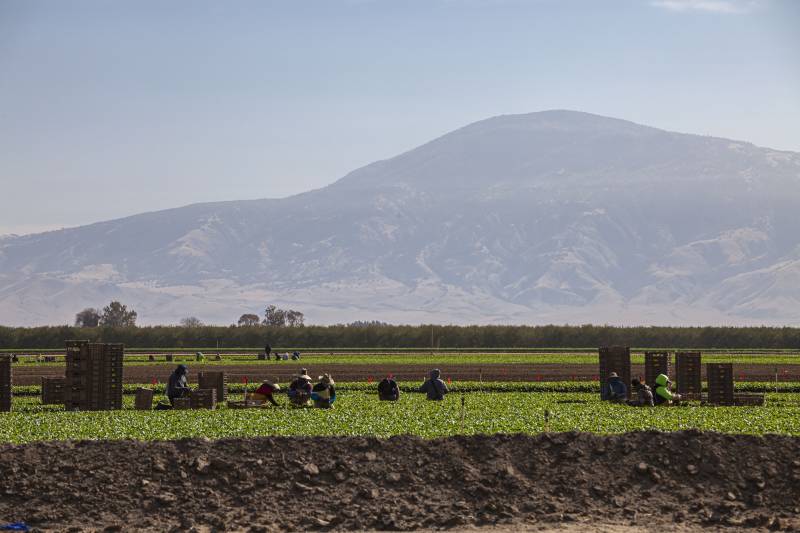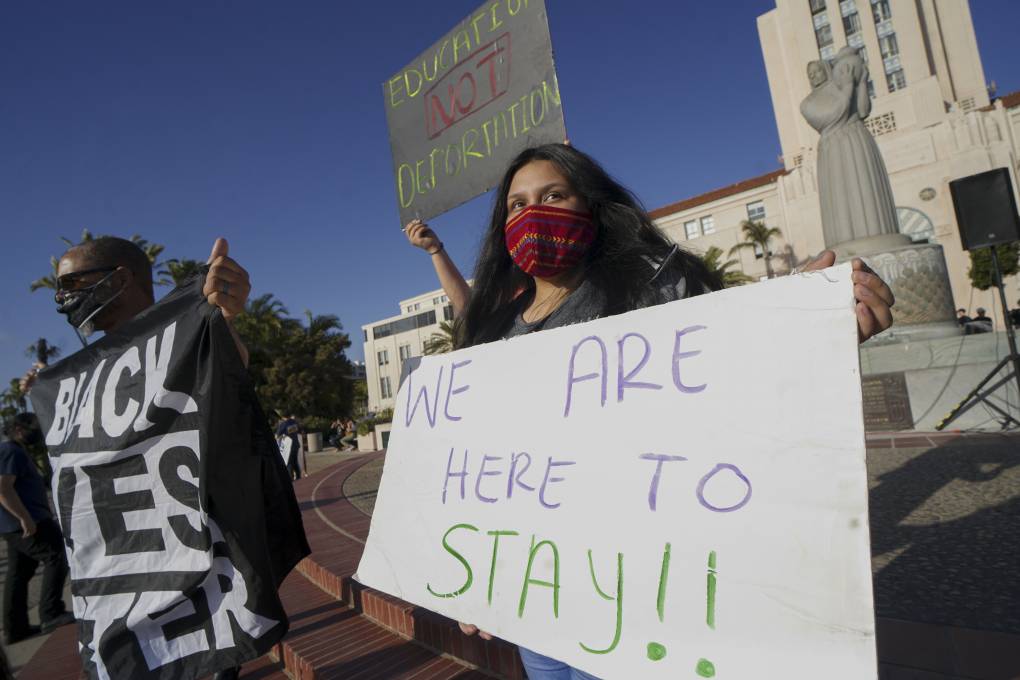In the lawsuit, attorneys estimated that at least 40 people who were arrested were deported to Mexico after being coerced into agreeing to voluntary departure, a form of expulsion that involves waiving one’s right to an immigration hearing.
People who agree to voluntary departure are also prohibited from reentering the United States, even if they would otherwise have a legal basis to do so, for at least three years and up to 10 years if they had been in the country for more than a year, Bernwanger said.
“What we’re challenging is Border Patrol’s attempt to push people through this process of banishment without telling them what would happen to them if they accepted it,” Bernwanger told KQED. “What we’re challenging is Border Patrol’s absolute failure to explain people’s rights and explain the consequences.”
One of the plaintiffs in the lawsuit, Mungia Esquivel, reported being forcibly stopped by immigration officers outside a Home Depot in Bakersfield on Jan. 7.
According to the lawsuit, officers arrested Esquivel when he tried to avoid their questioning and took him away without due cause or explanation.
Esquivel, who has lived in Bakersfield for over 10 years, was then taken to El Centro Station, a Border Patrol facility over 300 miles away at the U.S.-Mexico border. There, he was forced to stay in poor conditions and made to sign documents that he was not permitted to see by Border Patrol agents, attorneys said. Esquivel was released three days after his arrest, but he still feels traumatized by his experience, the lawsuit reads.
Three of the other plaintiffs were forced to accept voluntary departure after Border Patrol agents arrested them during the raids, according to the lawsuit. Bernwanger said two of them are still “stranded” in Mexico, and part of the lawsuit is an effort to bring them back.
“Their lives have been thrown into crisis as the result of Border Patrol’s illegal actions,” Bernwanger said. “This raid was not legal the way the Border Patrol ran it. … It absolutely disrupted people’s lives, and we are working through the legal process to try to make them whole again — but there’s really no way to do that because the disruption to their lives and their families has been so profound.”


